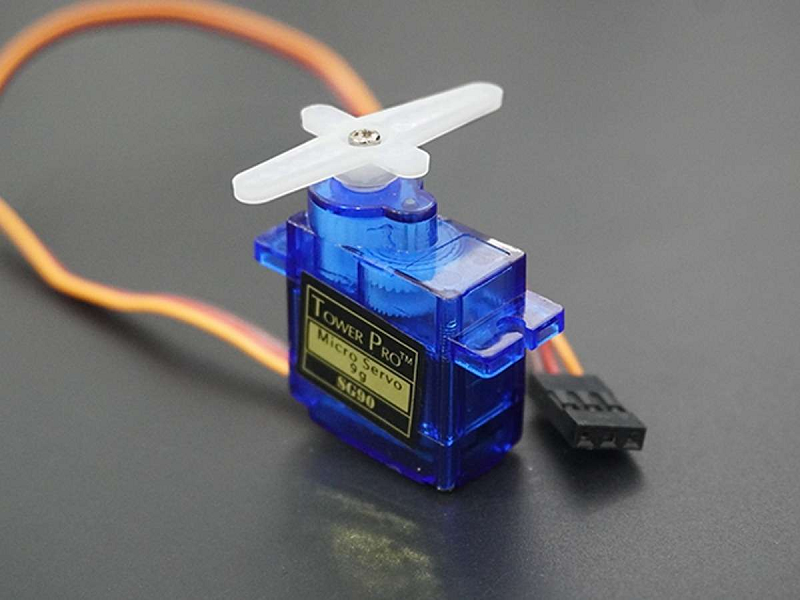Servo motors are integral components in modern automation systems, providing precise control of motion and positioning. As industries increasingly adopt automation technologies, the demand for servo motors continues to rise.
This article explores the market for servo motors buyers, highlighting trends, insights, and opportunities for those looking to invest in these high-performance components.
The Growing Demand for Servo Motors
Servo motors are essential in various applications, including robotics, aerospace, automotive, and manufacturing. They are known for their accuracy, efficiency, and reliability, making them a preferred choice for high-precision tasks. The growing trend of automation in industries is driving the demand for servo motors, as they offer superior control compared to traditional motors.
Key Sectors Driving Demand
- Robotics: The robotics industry is a significant consumer of servo motors. These motors are used in robotic arms, drones, and other robotic systems to achieve precise movements and tasks. As robotics technology advances, the need for high-performance servo motors grows.
- Aerospace: In aerospace applications, servo motors play a crucial role in controlling various systems, such as landing gear, actuators, and flight control surfaces. The aerospace sector’s stringent requirements for precision and reliability drive the demand for high-quality servo motors.
- Automotive: The automotive industry utilizes servo motors in various applications, including electric power steering, automatic transmission systems, and advanced driver-assistance systems (ADAS). As vehicles become more advanced, the need for reliable servo motors increases.
- Manufacturing: Automation in manufacturing processes, such as CNC machines and conveyor systems, relies heavily on servo motors for accurate control and positioning. The push for increased efficiency and productivity in manufacturing drives the demand for these motors.
Market Trends and Insights
- Technological Advancements: Recent advancements in servo motor technology, such as the development of more compact and energy-efficient models, are shaping the market. Innovations in control algorithms and integration with IoT (Internet of Things) are enhancing the capabilities of servo motors.
- Customization and Versatility: Buyers are increasingly looking for customized solutions to meet specific application requirements. Servo motor manufacturers are responding by offering a range of options, including different sizes, torque ratings, and feedback systems, to cater to diverse needs.
- Integration with Industry 4.0: The rise of Industry 4.0, characterized by smart manufacturing and interconnected systems, is influencing the servo motor market. Buyers are seeking servo motors that can seamlessly integrate with digital control systems and provide real-time data for better performance monitoring and maintenance.
- Sustainability and Energy Efficiency: As industries focus on sustainability, energy efficiency has become a critical factor in selecting servo motors. Manufacturers are developing energy-efficient models that reduce power consumption and contribute to greener operations.
- Global Supply Chain Dynamics: The global supply chain for servo motors is affected by various factors, including geopolitical events and raw material availability. Buyers need to stay informed about supply chain trends to ensure timely procurement and mitigate potential disruptions.
Opportunities for Buyers
- Emerging Markets: As automation technology becomes more accessible, emerging markets are experiencing increased adoption of servo motors. Buyers in these regions have opportunities to invest in cutting-edge technology and contribute to the growth of local industries.
- Collaborations and Partnerships: Collaborating with servo motor manufacturers or system integrators can provide buyers with tailored solutions and support. Partnerships can also lead to cost savings and improved access to advanced technologies.
- Focus on Maintenance and Support: Servo motors require regular maintenance and support to ensure optimal performance. Buyers can benefit from service contracts and support packages offered by manufacturers to prolong the lifespan of their investments and minimize downtime.
- Innovation and Research: Investing in research and development can lead to innovative applications of servo motors. Buyers who engage in R&D activities can stay ahead of the competition and explore new possibilities for integrating servo motors into emerging technologies.
Key Considerations for Buyers
- Application Requirements: Understanding the specific requirements of your application is crucial when selecting servo motors. Factors such as torque, speed, accuracy, and environmental conditions should be considered to choose the right motor for your needs.
- Manufacturer Reputation: Choosing a reputable manufacturer is essential for ensuring the quality and reliability of servo motors. Buyers should research manufacturers’ track records, customer reviews, and product warranties before making a purchase.
- Cost vs. Value: While cost is an important consideration, buyers should also evaluate the value offered by servo motors. Investing in high-quality, reliable motors can lead to long-term cost savings by reducing maintenance and downtime.
- Technological Compatibility: Ensure that the servo motors you select are compatible with your existing control systems and automation infrastructure. Compatibility issues can lead to integration challenges and affect overall system performance.
- Future-Proofing: Consider the potential for future upgrades and expansions when selecting servo motors. Choosing models that can accommodate future advancements or changes in technology can help protect your investment and extend the lifespan of your equipment.
Conclusion
The market for servo motors buyers is dynamic and evolving, driven by advancements in technology, increasing automation, and diverse industry applications. By staying informed about market trends, exploring opportunities, and carefully considering key factors, buyers can make informed decisions and leverage the benefits of high-performance servo motors. As industries continue to embrace automation and precision, the demand for servo motors is set to grow, offering exciting prospects for buyers and manufacturers alike.

